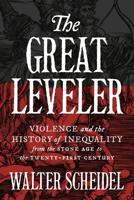Publisher's Synopsis
After the Opium War, in order to maintain its rule, the Qing government intensified its exploitation of the people, which triggered a series of uprisings.
After years of continuous wars, the Kuomintang finally took control of basically all of China, and the Republic of China became China's legal government. However, Chiang Kai-shek met Mao Zedong at the wrong time. At the same time, the Japanese full-scale invasion of China gave the Communist Party a chance to breathe and develop.
After the end of World War II, civil war broke out again between the Kuomintang and the Communist Party. Chiang Kai-shek was defeated in Taiwan and the People's Republic of China was established. For officials, happiness had just begun, but for farmers, the real disaster had also just begun.
The Communist Party used to criticize the corruption of Kuomintang officials, but the corruption of the Communist Party exceeds that of any dynasty in history, because no emperor in the past dynasties would say that all property belongs to the state. But now, in this land of China, All property belongs to the state, and the agent of this state is the Chinese government.
In this case, farmers have become cattle and sheep raised by officials. Officials may use legal regulations to seize private property at any time, and people's most basic rights are all deprived. They cannot afford comfortable clothes, safe food, or a house, and they are dying quietly. But no one will see them, because they themselves are not aware of what a harsh environment they live in, because many people have lived in such an environment since birth, and news control also prevents them from seeing the real world. . After the reform and opening up, commodity exports saved China's nearly collapsed economy, but officials soon discovered that the formerly useless farmers had become an endless treasure, because these laborers could bring a large amount of foreign exchange to the government, which caused even more serious problems for the farmers. After the disaster, officials have countless ways to force migrant workers to work, but these jobs that often exceed physical limits do not allow them to live the most ordinary life.
The above is the background of the story in this book. For nearly a hundred years, this Chinese peasant family has only been doing one thing, which is to live and work hard to survive. As long as they have food to eat, they can ignore all injustices. Zhang Fugui and Zhao Yue'e fled to Tongguan during the civil war between the Kuomintang and the Communist Party. Their son Zhang Fugui married Wang Xuezhen, the beggar's daughter. When Wang Xuezhen gave birth to her eighth child, both Zhang Fugui and her eldest daughter died of illness. Wang Xuezhen raised her children with difficulty by relying on a book of Chairman Mao's quotations. In this abnormal social and family environment, Wang Xuezhen's children all suffered from mental illnesses of varying degrees.









